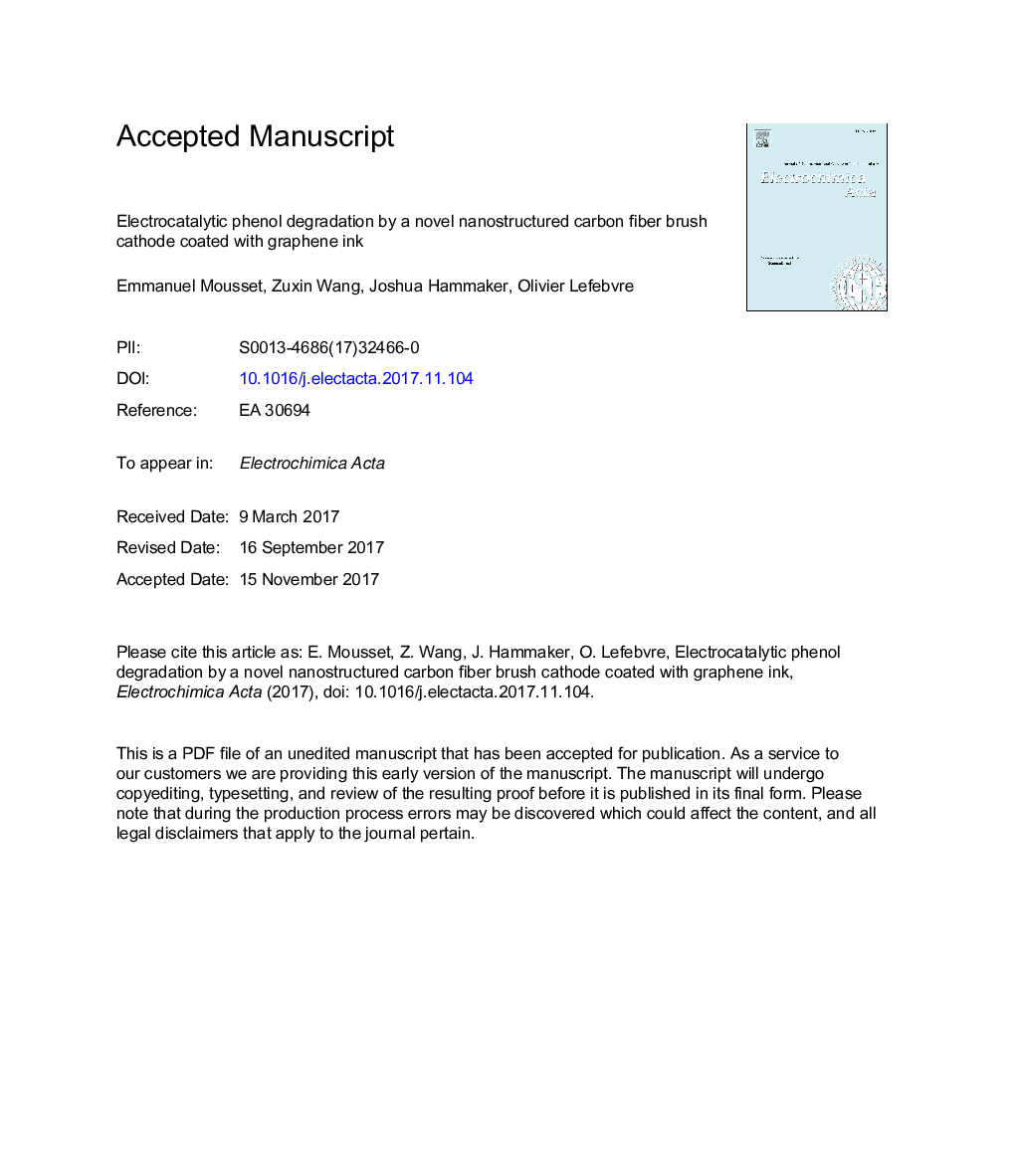| Article ID | Journal | Published Year | Pages | File Type |
|---|---|---|---|---|
| 6605186 | Electrochimica Acta | 2017 | 40 Pages |
Abstract
A new promising electrochemically-exfoliated graphene-based cathode for the electrocatalytic Fenton process was elaborated by an ink-coating technique. For this purpose, a method to coat graphene ink over a carbon-fiber brush substrate (referred to as Gr-Brush) was optimized and a 1:3 (w/w) Nafion®:graphene ratio increased the H2O2 accumulation yield by 40% (4.23Â mg-H2O2 Lâ1 cmâ2), as compared to an uncoated brush. Such improvement was attributed to the higher electroactive surface area and conductivity of Gr-Brush, a fact confirmed by cyclic voltammetry and impedance measurements. Due to a remarkable raise of OH production during the electro-Fenton (EF) process, the phenol degradation rate more than doubled and the mineralization yield increased from 78% (final total organic carbon, TOC, concentration of 5.28Â mg-C Lâ1) with an uncoated brush to 98.5% (final TOC concentration of 0.34Â mg-C Lâ1) with Gr-Brush, following 6Â h of EF treatment. Furthermore, the energy required to achieve 40% of phenol mineralization with Gr-Brush was as low as 0.10Â kWh g-1 TOC, which outcompeted any other existing graphene-based carbon cathode material coated with either electrochemically-exfoliated graphene (e.g., 0.20Â kWh g-1 TOC with carbon cloth) or reduced graphene oxide (rGO) (e.g., 0.53Â kWh g-1 TOC with carbon felt), a crucial feature for prospective applications of the novel electrode.
Keywords
Mineralization current efficiencyEAOPLSVPPyAOPMCEPolypyrroleORRTOCPTFErGOPersistent organic pollutantGas diffusion electrodeElectro-FentonReduced graphene oxideEISGDEElectrochemical impedance spectroscopyAdvanced oxidation processElectrochemical advanced oxidation processPANNanomaterialsOxygen reduction reactionCyclic voltammetrypopPolyacrylonitrilepolytetrafluoroethylenehigh performance liquid chromatographyHPLCTotal organic carbon
Related Topics
Physical Sciences and Engineering
Chemical Engineering
Chemical Engineering (General)
Authors
Emmanuel Mousset, Zuxin Wang, Joshua Hammaker, Olivier Lefebvre,
